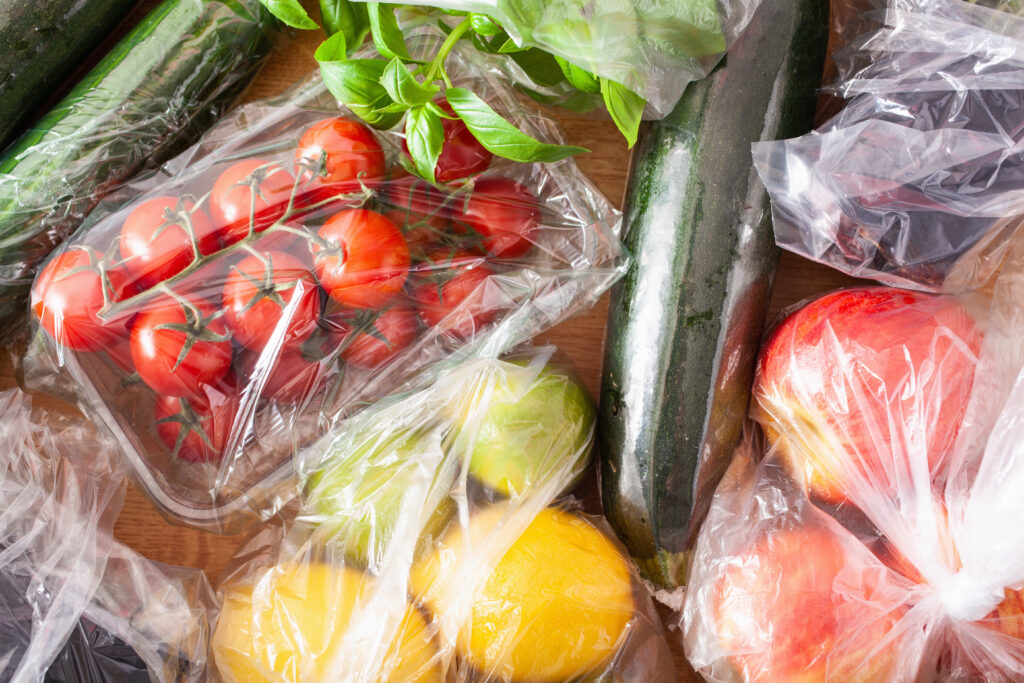One of the biggest movies of the year has dropped in the cinemas – the long-awaited Barbie movie was released last month and has already been a box-office success! The movie has been empowering women across the globe with it’s inspiring message to the audiences, yet in our case, there is one iconic line in particular that piqued our interest. ‘Life in plastic, it’s fantastic’ – coined from the hit movie, the line comes from the classic 90’s Aqua hit, and it is one message we are always happy to highlight here at Cromwell Polythene!

Polythene Benefits
To us, plastics (especially polythene) in comparison to other materials really is fantastic, and whilst we see the media and other misguided outlets make the diverse material to be a major pollution culprit – there are many benefits to using polythene. Despite being made in the early 1900s, plastic became widely popularised during the 60s and 70s, when a need for an alternative to traditional items such as metal, tin, glass and cardboard was needed. Plastic quickly became the material of choice due to it being cost-effective, versatile, sanitary, and easy to manufacture in to a variety of forms. Now over 6 decades later, these advantages still remain today, making plastics (as Barbie says) Fantastic! So lets delve into these a bit further:
Resource efficiency – Production
There is no denying that material and packaging waste is an issue, and plastic waste seems to bear the brunt of the problem, however, plastic as a material can be considered far greener for the planet than the alternatives because paper and glass use far more heat, water and energy to produce. As glass is heavier, and the melting point is >1,000C higher than plastic, it is extremely energy intensive to produce, distribute, and recycle. The same amount of energy & emissions to make a single glass bottle could be used to make 24 plastic bottles. Paper is 30% more dense than plastic and also uses considerable amounts of water and energy in production, it’s carbon footprint is 4x that of a polythene carrier. Unless you re-use your paper bag >4 times, paper is more environmentally damaging On account of its contribution to global warming Green House Gases.
Resource efficiency – Transportation
Unlike its alternatives, polythene weighs considerably less than other materials like paper, cardboard and glass. As an example, a plastic bag can weigh as little as 8 grams, whereas a paper bag weighs at its lowest 50 grams, and a cotton shopping bag is considerably more at 250 grams. Despite the low weight of polythene; its strength, structural integrity and overall performance is not comprised, Unlike polythene, paper and cardboard will weaken when wet, or after several uses – polythene on the other hand can be used time after time in the worst conditions. Polythene is also lightweight, enabling the material to be more carbon efficient in transportation, unlike heavier materials such as cardboard and glass. The compact nature of the polythene also allows for more products to be loaded – transportation can be considered far more resourceful when using polyethene packaging.
Polythene & Waste management
Polythene not only saves on carbon emission during manufacturing, transportation and recycling but also usage – in particular in food production. Using plastic packaging can extend the shelf-life of food for up to 28 days, this will save carbon and methane emissions produced from decaying food items.
Miss-managed waste can often lead to less recycling and an increase in incineration, which can increase the amount of CO2e released into the atmosphere. Polythene is the best material for capturing, segregating, containing and securing waste whilst using minimal resources. The material is strong yet lightweight and made mostly of recycled content. The ability to manufacture the material as translucent and in varying colours enables the waste handler to appropriately separate waste to maximise recycling and reduce waste sent for incineration. This will become more important as new UK legislation reduces the complexity of hard-to-recycle materials. Read our previous blog to learn more about segregated waste.

Polythene PPE
Polythene’s exceptional protective, hygiene and comfort benefits make them the ideal choice for PPE like gloves and aprons in hospitals and surgical areas. whether the item is single or multi-use, it is far safer than its alternatives. Not too long ago we saw PPE play a life-saving role during the COVID-19 pandemic, face masks, gloves, syringes and other medical equipment were all made with plastics, and helped to save millions of lives. Read more about how plastic has revolutionized the healthcare industry.
Costs effective
The cost of living seems to show no signs of lifting, so choosing the most cost-effective option is a must for many consumers and organisations. In this case, look no further than polythene, which is often the best value for money!
Well Barbie was right, plastics really are fantastic! We have a wide range of products made from the wonderful material both waste sacks and packaging – get in touch with us today and discuss your requirements with us!